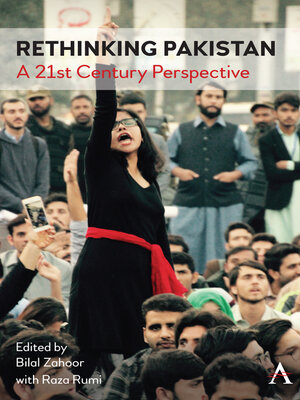
Sign up to save your library
With an OverDrive account, you can save your favorite libraries for at-a-glance information about availability. Find out more about OverDrive accounts.
Find this title in Libby, the library reading app by OverDrive.



Search for a digital library with this title
Title found at these libraries:
| Library Name | Distance |
|---|---|
| Loading... |
Rethinking Pakistan is a wide-ranging analytical dissection of the Pakistani polity and offers a well-meaning, progressive prescription for present-day Pakistan, stitched together by an eclectic list of experts spanning diverse backgrounds and subjects. From energy self-sufficiency and scientific development to freedom of the press and the essential question of the dominance of the military over civilian affairs, this compendium offers a suitable guide for anyone who seeks to understand the striking mix of contemporary and historic challenges faced by Pakistan in the twenty-first century. The book deals with Pakistan's contemporary realities and future prospects.
|This book brings together the leading contemporary currents of thought from a galaxy of established scholars and intellectuals of Pakistan. It is a monumental contribution to the national debate on a series of crises and lingering issues that need attention of the stakeholders all around.
The book covers three major areas of investigation into public life in the country. One, it delves into the historical, sociological and cultural causes of various political conflicts, ranging from the negative role of the educational curricula for national harmony to cultural violence and persistent militarism to the curse of enforced disappearances. There are highly analytical contributions that define the conflict-resolution nexus. Two, the book is a source of inspiration on the liberal agenda of creating a scientific frame of mind, setting the feminist debate in a global context, challenging the shrinking space for media and focussing on the largely forgotten area of industrial relations. Readers will find ample issue orientation in the analysis and policy orientation in the deliberations. Three, the book enters a domain of hope, planning for a bright future and focussing on some longer-term issues couched in comprehensive new approaches to development, environment, energy, foreign policy and feminism.
The scope of the book is amazingly wide, the analysis is rich with conceptual references and empirical finding, and the scholarly idiom is comprehensible for both the articulate section of the population and the scholarly community.







